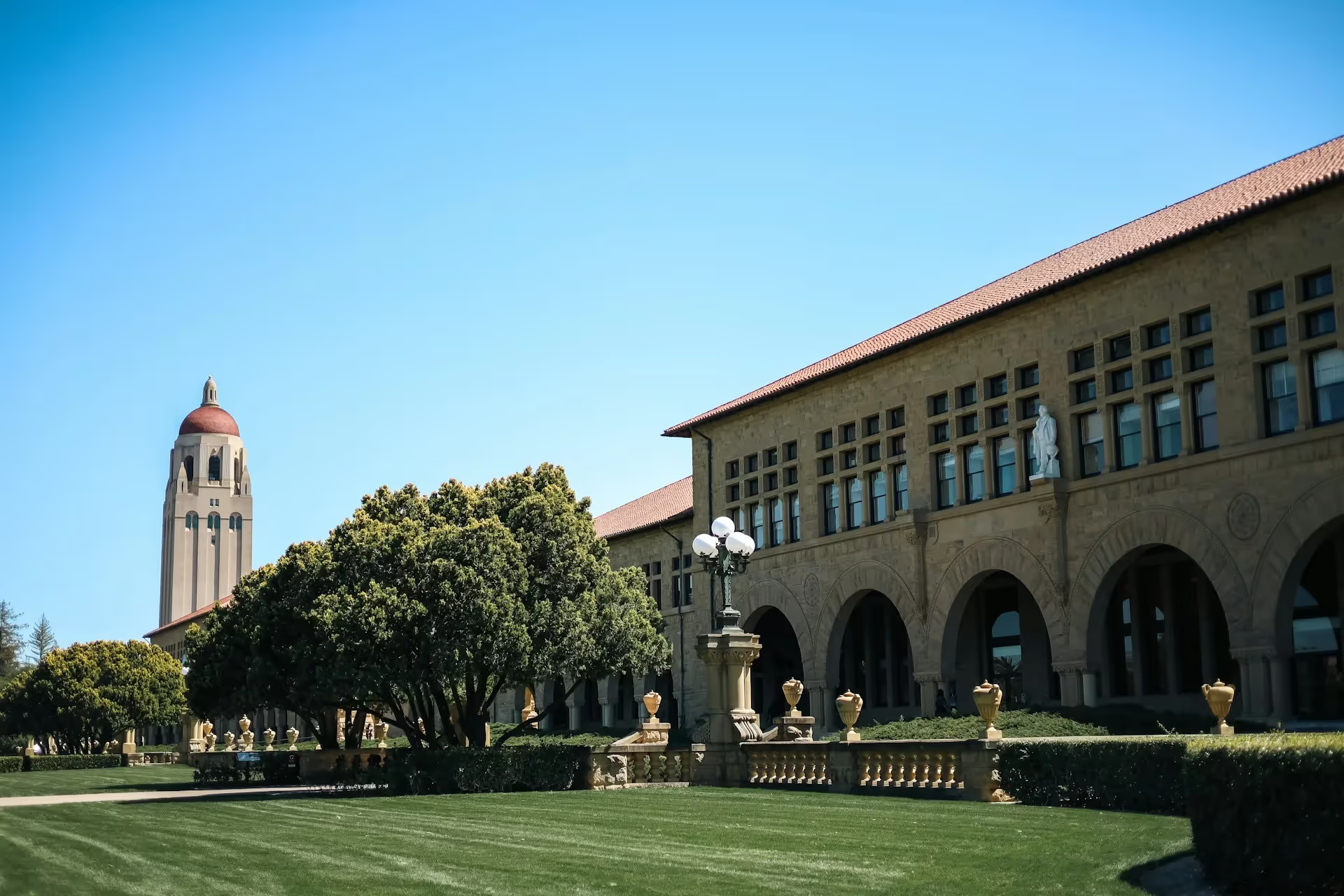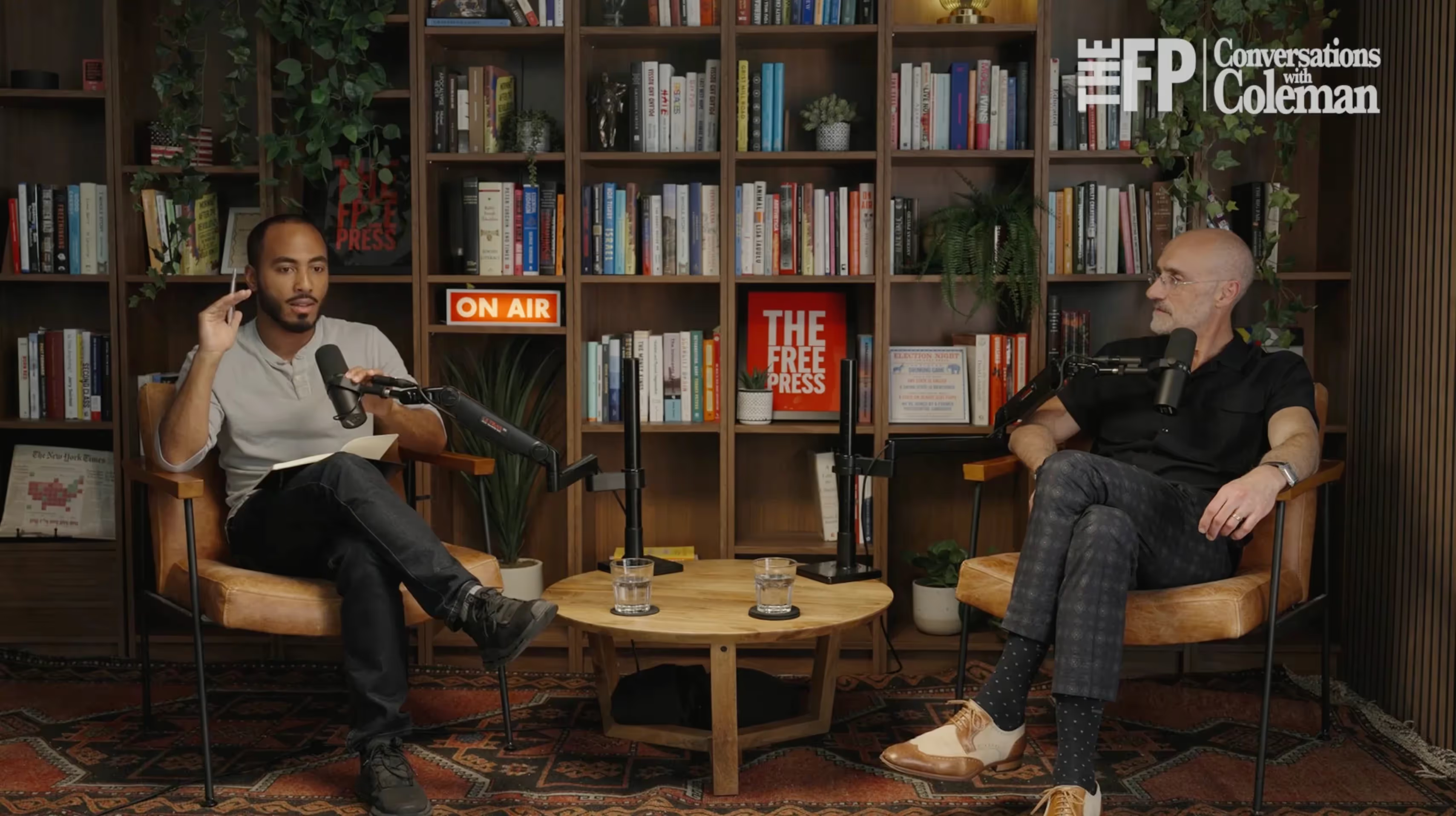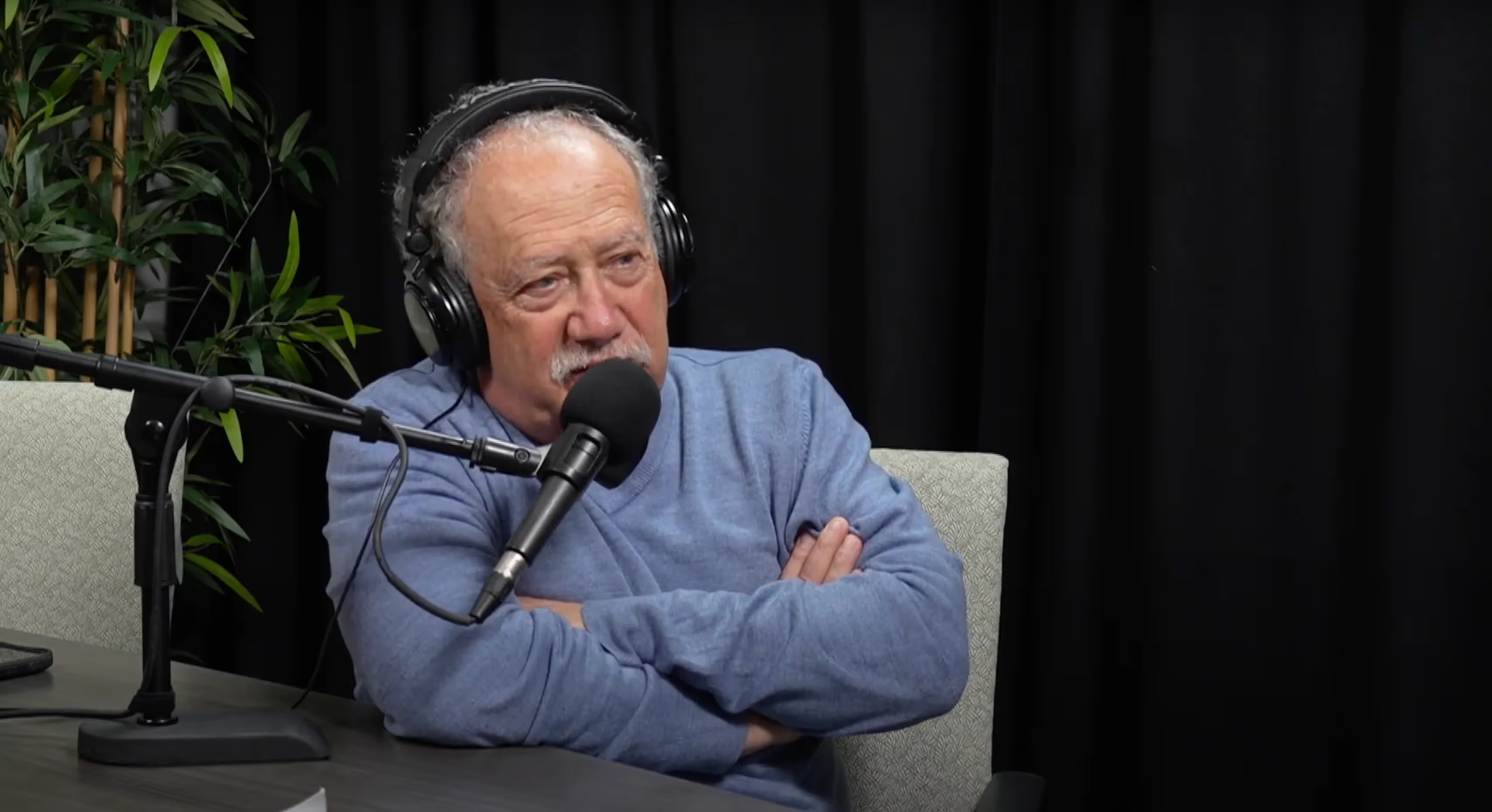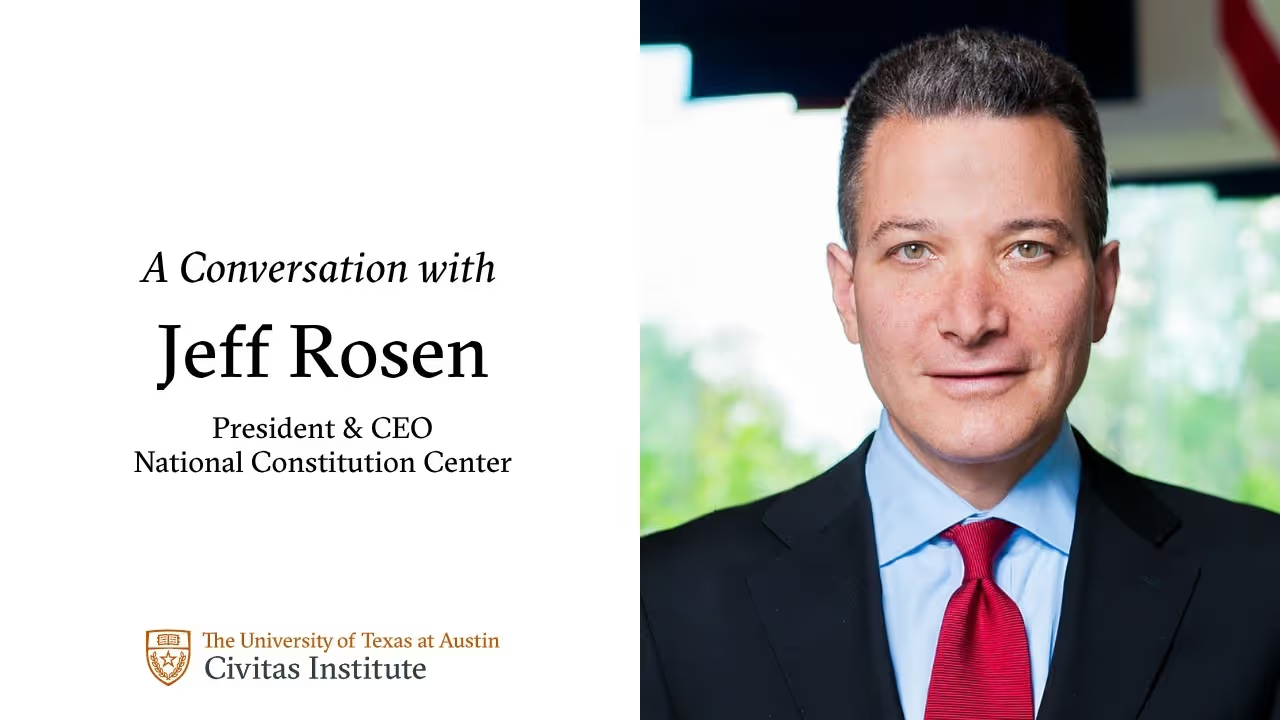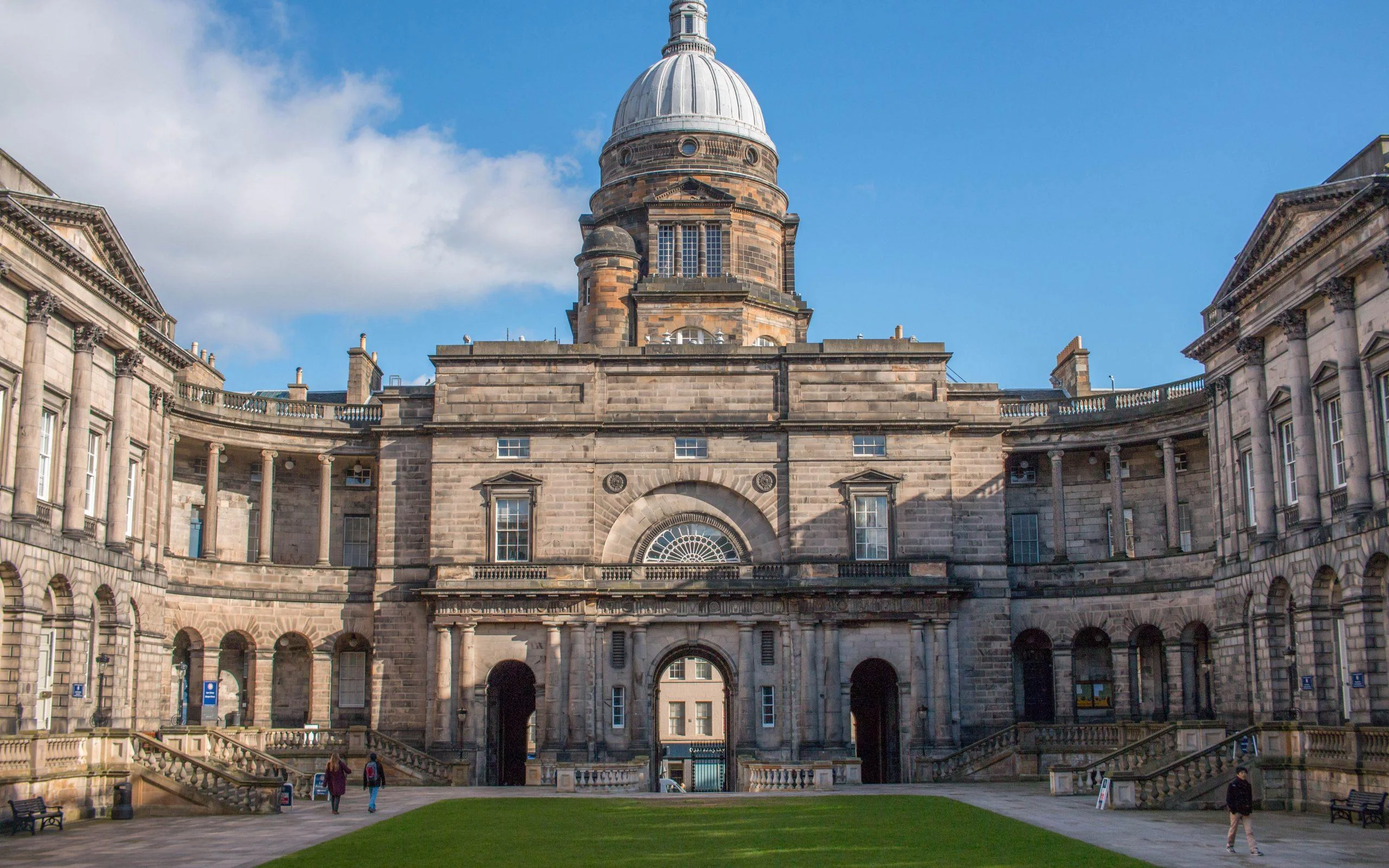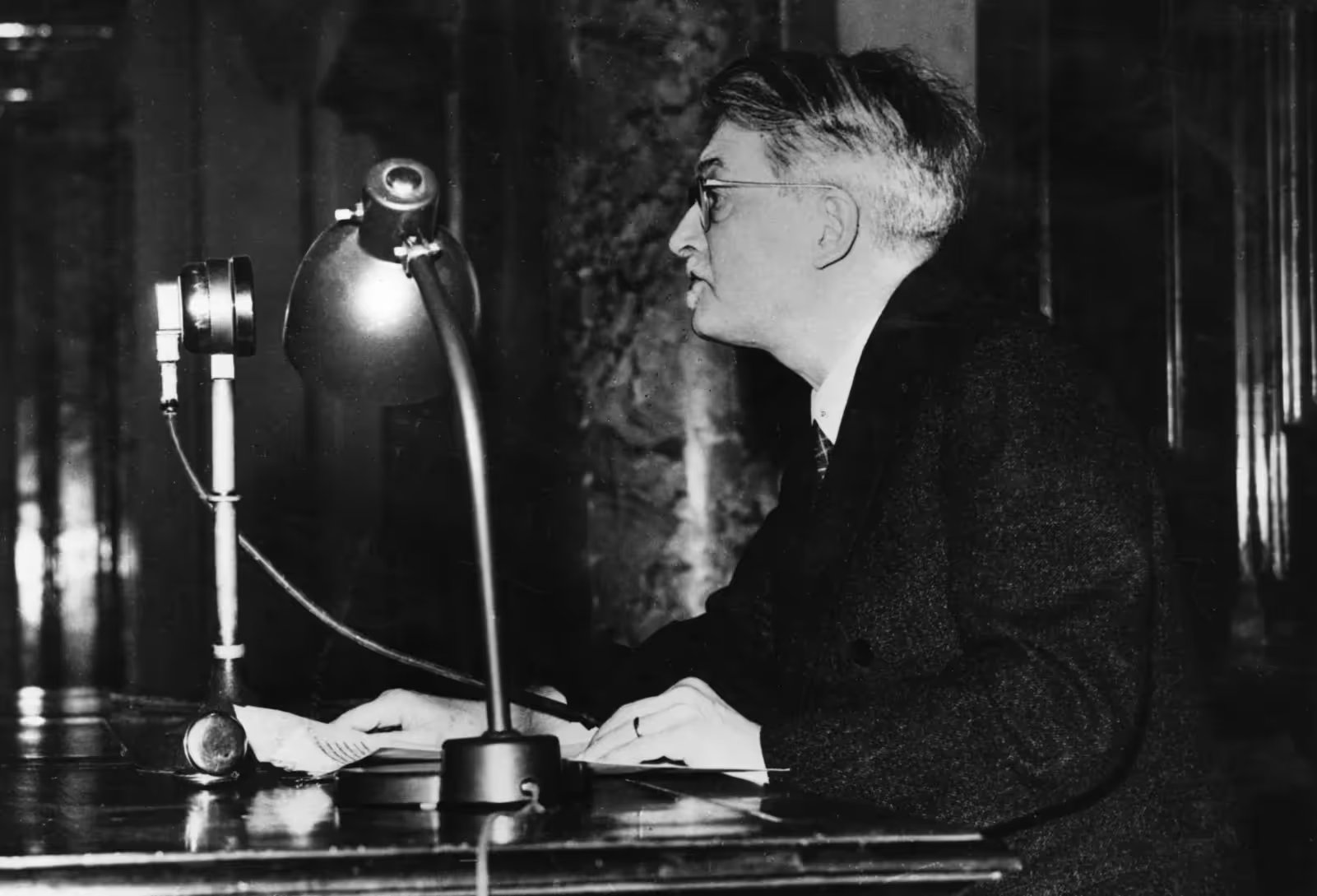
The Philosophy of Jacques Maritain — A Long-Awaited Introduction
Maritain produced a Thomism for the modern world, credible to people of goodwill and sound mind.
Jason L. A. West has done the English-reading world a remarkable service with his new and long-overdue introduction to the thought of Jacques Maritain. It is long overdue because Maritain is one of the most important figures of the twentieth century, and with reactionary movements growing in Catholic circles, which themselves respond to radical trends in the secular world, he remains as relevant today as he was sixty years ago. This is especially so in Catholic moral philosophy and politics.
After the Second World War, Jacques Maritain was a big deal. Already the French ambassador to the Vatican, he was offered a job as professor of philosophy in 1948 by the president of Princeton University, Harold Dodds, who went out of his way to intercept Maritain at a New York airport for this purpose. After consulting his wife and resigning from his position as ambassador, Maritain joined the Princeton faculty. He taught for four years before enjoying the life of a Professor Emeritus in Princeton for the next eight.
Maritain’s postwar reputation was held in such high esteem due to his contributions to political and ethical thought. His thinking on politics, however, had not always been so popular among all Catholics. Until 1926, he spent little time on political matters. Like most French Thomists, he supported Action Française, the reactionary monarchist movement led by Charles Maurras. But that year, Pope Pius XI burst his bubble by condemning Action Française, later asking Maritain to defend this condemnation. Throughout the next phase in his life, Maritain, whose biggest contemporary influence was Reginald Garrigou-Lagrange, would elaborate — in stark contrast with Garrigou and most French Thomists — a Christian democratic political philosophy that emphasized respect for human rights. His most important work on this topic was his 1937 book Integral Humanism.
With this development in his thought, Maritain was able to see through the evil of the 1930s clerical fascist movements. Unfortunately, this also alienated him from many in the Church. His rejection of Francisco Franco's politics, for instance, angered many. Despite Franco’s thug politics, many Catholics felt a kind of tribal allegiance to him, understandably, because he stood up to Spain’s anti-clerical left (part of which, empowered by the civil war, would go on to murder thousands of priests and nuns). Franco’s trusted minister Ramón Serrano Suñer would even complain of Maritain—in the paranoid, antisemitic, and conspiratorial manner typical of Franco and his men—that Maritain’s ideas “have accents that recall the thinking of the Elders of Zion and he has the false style of Jewish democrats.” Confusing Maritain (previously a Protestant) with his wife Raissa, Serrano dismissed Maritain as a “converted Jew,” and questioned the authenticity of his conversion. To clerical fascist Catholics, Maritain was a traitor.
After France surrendered to Nazi Germany in 1940 and the parliament of the Third Republic dissolved to make Philippe Pétain the dictator of a new government centered in the city of Vichy, many of the old-guard French Thomists and partisans of Action Française rejoiced, despite, or even partly because of, legislation that made Jews effectively second-class citizens (scaling back Jewish emancipation was an old aspiration of continental reactionary movements like Action Française). In a letter to Maritain, Garrigou-Lagrange would say, “I am entirely with the Marshal [Pétain]… I see him as the Father of the patrie, blessed with a good sense verging on genius, and as a truly providential man.” Elsewhere, Garrigou told Maritain that it would be a mortal sin to support Charles de Gaulle and the French Resistance.
Maritain was not quite as quick to see the full evil of the Vichy regime as his disciple Yves Simon, but the two Frenchmen living in America did what they could to support the cause of the French resistance through their voices and pens. By the time the war was over, when it was clear to everyone that Vichy was a Nazi collaborationist state, Maritain had every right to feel vindicated. In the 1946 second edition of Integral Humanism, he hints at this: “In republishing Humanisme Intégral after ten years (and what years!), I have contented myself with making in the text but a small number of corrections of detail, preferring to leave it as it was written before events which, it seems to me, are far from invalidating the philosophical views proposed in this work.”
Rather than seeing Maritain as a kind of Noah for French Thomism, who rescued in his ark the best ideas of Garrigou-Lagrange and others like him amid a flood of reactionary politics like that of Action Française and Vichy, Maritain’s opponents persisted, including Garrigou himself (despite being Maritain’s friend). In fact, Garrigou and Cardinal Ottaviani carried out a several-year effort to have the Pope place Maritain’s book Integral Humanism on the index of prohibited books—even Maritain’s friend Charles Journet was a target of suspicion for quoting Maritain’s Integral Humanism “as the Thomists quote Saint Thomas.” Dissuaded in part by Cardinal Montini (the future Pope Paul VI), Pope Pius XII was reluctant to follow through, repeatedly kicking the can until his death.
Maritain’s efforts were partially vindicated with the publication of Pope John XXIII’s encyclical Pacem in Terris, with its strong emphasis on human rights, and then more fully in the Second Vatican Council, when his close friend Charles Journet was made a Cardinal, and he, a layperson who could not partake of the Council directly, advised Pope Paul VI. Dignitatis Humanae, the conciliar document that affirmed religious liberty and the basic presuppositions of liberal democracy, was made possible in part by the philosophical and theological precision of Maritain, in collaboration with Journet. These efforts are less discussed but arguably even more important than the significant efforts of Nouvelle théologie theologians like De Lubac and Congar—who were also patriots (even heroes) of the French Resistance
Jason West opens the book with a “Background” chapter featuring a biography and discussion of Maritain’s approach. This illuminating chapter is followed by ten chapters dealing with epistemology, the philosophy of nature and science, metaphysics, natural theology, revealed theology, moral philosophy, political philosophy, the philosophy of education, aesthetics, and the philosophy of history, respectively.
West especially favors what is distinctive about Maritain, so it will be most accessible to readers who have some familiarity with Aristotelianism and Thomism, or at least some philosophical background. That is not to say that beginners should refrain from reading it. There is plenty that is accessible to a beginner to make it worthwhile. I would suggest that seminarians and students of Catholic philosophy include it in their bookshelf alongside the collection of Frederick Copleston’s A History of Philosophy, so that in their studies and further reading of Maritain and other twentieth century Thomists, they have it as a reference for better understanding Maritain’s perspective. It would also serve well for a college course on Maritain that included readings from Maritain himself.
Some of Maritain’s distinctive claims are more plausible than others. In each case, whether I was ultimately convinced or not, I found West’s articulation, explanation, and defense of Maritain’s positions exceptional. In these pages, one finds Maritain’s defense of realism, the claim that we know things in the real world. On this, he draws on the tradition of Thomistic commentators, particularly John of St. Thomas. Yet, his account has affinities with the realism of non-Thomists, such as C.S. Peirce and Michael Polanyi. One will also find in these chapters a strong defense of Maritain’s account of an intuition of being: an idea that presupposes the Thomistic distinction between the fact of existence, knowledge that this or that thing exists, and the act of existence that underlies that fact and requires a special philosophical insight to grasp.
There is also a vigorous defense of Maritain’s unique Báñezian account (from Domingo Báñez) of the relationship between grace and freedom that evades the accusation against other Báñezian accounts (particularly that of Garrigou-Lagrange) that they imply that God is the cause of evil in creatures. Similarly, Maritain’s account of Christ’s human knowledge does more justice to the Gospel text about how Christ “advanced [in] wisdom and age” (Luke 2:52) than other Thomistic accounts.
West also offers a strong defense of Maritain’s position about the common good, which is honestly not much different than that of Garrigou-Lagrange. A minor quibble I have with that section is West’s claim that John Finnis holds the view that the common good is an aggregate of individual goods, a claim that Finnis would deny and is not implied in the text of Finnis that West quotes. I do not see how a “set of conditions” that allow everyone in a community to flourish, such as having a stable and fair legal system, represents anything but a genuinely common good. In all these cases, however, West’s summary, analysis, and defense of Maritain is meticulous and fair to Maritain’s opponents.
I will close with special attention to two sections closely related to my work. The first regards Maritain’s distinctive position on our knowledge of the first principles of natural law. With his thoughts on this matter, Maritain anticipates and gives impetus to what I call the first-personal accounts of Thomistic moral philosophy, which include the various virtue-centered approaches that sprang up in Roman pontifical universities starting in the 1980s (Rhonheimer, Abba, Rodriguez Luño, Caffara, Melina), the fingerprints of which can be found in John Paul II’s encyclical Veritatis Splendor, but it also includes the somewhat different perspective of John Finnis and Germain Grisez in the English-speaking world. According to all these perspectives, the first principles of natural law are primarily known from a first-personal practical perspective by everyday people as they deliberate and make choices. That is, grounding my deliberations and decisions are these fundamental goods that motivate my actions, such as friendship, knowledge, survival, procreation, etc.
As West himself notes, Finnis (along with Grisez) is somewhat critical of Maritain’s application to this matter of the Thomistic notion of knowledge by connaturality—a kind of tacit, affective, and valuational knowledge that relies on the will and appetite. It seems to me that the hangup of Finnis and Grisez is Maritain’s claim that the first principles of practical reason are known in a non-conceptual way. Perhaps Maritain’s wording is misleading. What I take Maritain to be saying is that the first principles of natural law, such as the goods of friendship, knowledge, and survival, are not usually the object of explicit consideration in our daily deliberations and choices. If wolves did not raise us, all our knowledge is conceptual in a sense. By learning our native language, we acquire conceptual knowledge that enhances our consciousness of the world around us. We learn words like friendship, kind, fair, just, knowledge, food, drink, death, life, and all words relating to our practical deliberations; the concepts underlying such words are in the background of our conscious experience and choices.
Nonetheless, although concepts mediate these choices, our will is at the same time attuned to these goods through the underlying appetite that moves it. This connaturality of our will to the goods allows for a kind of familiarity that goes beyond our explicit conceptual awareness. One can try to articulate what one knows at this level, as a virtuous mother tells her children why they should make the bed, tell the truth, etc. But what the holy mother knows by affective familiarity, the fruit of her experience striving for moral improvement, is more than she can articulate—and this is true even if she is a moral philosopher. She might be a saint, but she might not have the most convincing explanations. The aphorisms she tells her children—a kind of explicit knowledge that Maritain calls “practically practical” in contrast to the “speculatively practical” knowledge of moral philosophy—might be imprecise and only applicable in certain situations. She might even be philosophically confused, despite having access to substantial data as a good person.
That is not to say that affective familiarity with goods is the only tacit component of our practical knowledge, but it is one most significant component of it, and along with tacit knowledge of our daily environments, and our know-how of how to get around them, knowledge by connaturality allows the sage to make prudent choices beyond any universal knowledge that he or she can learn in moral philosophy. The basic ideas are all there in Aristotle and Aquinas, but Maritain internalized them, reflecting on his own experience, while engaging with the Thomistic tradition (especially Cajetan).
Finally, there are the political aspects of Maritain’s thought that I discussed at the beginning. Here, West’s treatment is also commendable. His philosophical analysis of Maritain’s claims, however, could be supplemented with an analysis of the sources. Maritain did not derive these ideas from nowhere. For instance, he draws on a scholastic theory of political authority, that authority to govern the political community is given by God to the political community (or body politic) itself, which it then delegates (in some versions, transfers) to that part of the political community that is the state or government. This was all there in the best of the Thomistic tradition through the seventeenth century, articulated most explicitly by the Spanish Thomists of the School of Salamanca. Maritain engages deeply with that earlier tradition, corrects it when necessary, and develops it based on his own philosophical insight, seeing its relevance for democracy—especially when the body politic does not want to be ruled by a monarch. Nonetheless, he is clearly a faithful member of that tradition.
The same is true for Maritain’s defense of (subjective) human rights (how we think of rights today), the language of which was commonplace among the Spanish Scholastics, and can even be found among Thomists as early as Hervaeus Natalis in the fourteenth century (before Ockham); before that it was used freely by canon lawyers of the twelfth and thirteenth centuries with no controversy. West also notes that this topic is frequently discussed in the social doctrine of the Church. Any controversy about it arose mainly after the French Revolution, as Thomists and other Catholics dug in against the opponents of the old regime. In my opinion, this foundational political morality of Maritain holds up quite well, though it could be supplemented with a greater appreciation of constitutionalism and the use of other tools of political philosophy, like economics and other social sciences.
Maritain’s primary novelty, however, was his defense of religious liberty, which West touches upon here and there, but which I have a few additional things to say. Regarding the issue of church and state, Maritain and his friend Journet accepted that something like an integralist arrangement in which the temporal authority is institutionally subordinated to the spiritual authority of the Church, thus authorizing the use of state power for some kind of religious regulation, was not wrong per se, semper et ubique, but the social-historical-institutional context in which it was a reasonable arrangement, the “sacral age” of the high Middle Ages, had passed.
In the “secular age,” by contrast, the subordination of the temporal to the spiritual authority best happens in the hearts of the faithful, including those who work in politics to serve the common good. As West puts it, there is no going back. I discuss this more in-depth elsewhere, and I will again in upcoming projects, but suffice it to say that the social-institutional context of the High Middle Ages was unique and unrepeatable. Given our current context and knowledge of possibilities, imposing the distinctive institutions of the sacral age in our time would not only be ineffective but also represent an insufficient respect for human dignity. As Kevin Vallier notes in his defense of Maritain on this point, the issue of nineteenth century popes, especially Pius IX, rejecting a system of religious liberty as ideal, is dissolved by Maritain because he argues that no political arrangement is ideal—it depends on the social-historical-institutional context what political arrangement is best. Cardinal Charles Journet clearly saw this all as key to understanding Dignitatis Humanae:
From the time of Constantine the rulers of the Church often had recourse to the secular arm to defend the rights of the faithful and to preserve the temporal and political order of the said Christendom. But under the influence of the preaching of the Gospel, the distinction between temporal and spiritual things has gradually been made clearer, and is today obvious to all. Therefore, and this is of the greatest moment, the doctrinal principle according to which matters temporal are subordinate to matters spiritual is in no way removed, but is applied in another way, that is by battling errors with the forces of light, not by force of arms.
Let us hope that Jason West’s excellent and long-overdue introduction to Jacques Maritain’s philosophy draws new disciples to Maritain at a time when his thought is needed most. Rather than treating Aquinas as an extended catechism, Maritain took Aquinas's thought seriously in his own philosophical reflections, understanding it in greater depth, sometimes correcting it, and at other times developing it in light of his other studies. The result was a Thomism for the modern world, credible to people of goodwill and sound mind.
Thomas Howes is the Editor-in-Chief of The Vital Center and the Director of the Reagan Caucus. He is also a research fellow of the Austrian Institute (Vienna), a member of the James Madison Society, and a lecturer in Politics at Princeton University.
Pursuit of Happiness
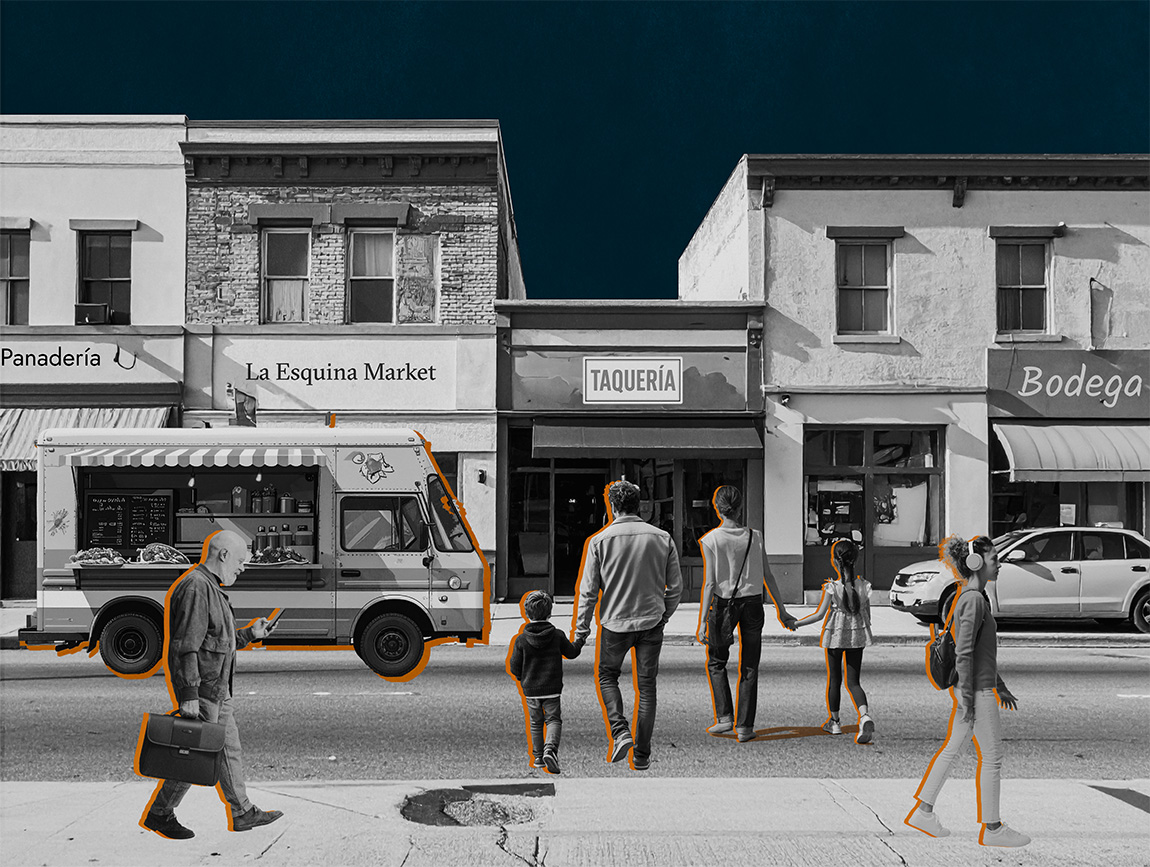
The Rise of Latino America
In The Rise of Latino America, Hernandez & Kotkin argue that Latinos, who are projected to become America’s largest ethnic group, are a dynamic force shaping the nation’s demographic, economic, and cultural future. Far from being a marginalized group defined by oppression, Latinos are integral to America’s story. They drive economic growth, cultural evolution, and workforce vitality. Challenges, however, including poverty, educational disparities, and restrictive policies, threaten their upward mobility. Policymakers who wish to harness Latino potential to ensure national prosperity and resilience should adopt policies that prioritize affordability, safety, and economic opportunity over ideological constraints.
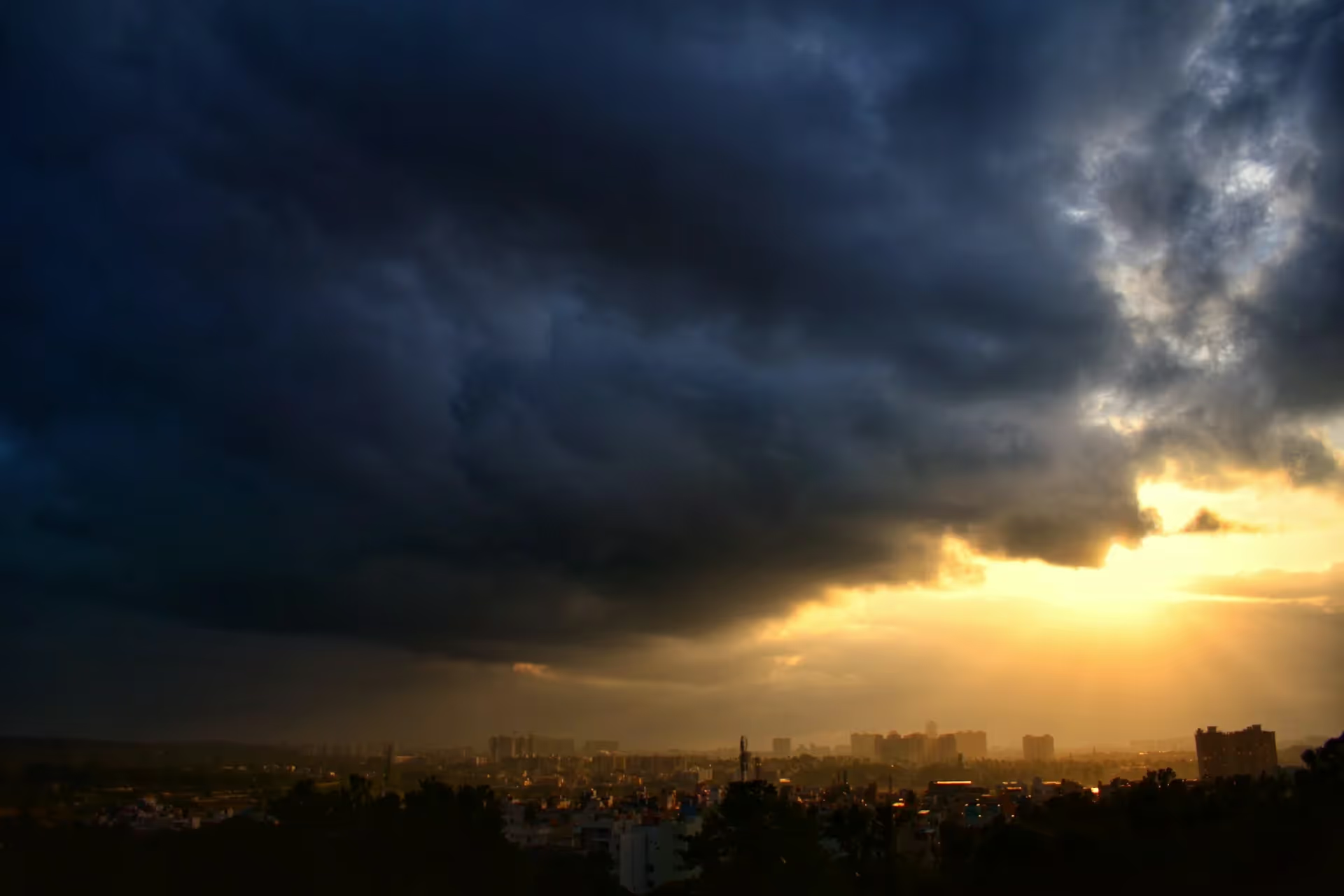
Exodus: Affordability Crisis Sends Americans Packing From Big Cities
The first in a two-part series about the Great Dispersion of Americans across the country.

The AI Future: Between Certain Doom and Endless Prosperity
AI continues to become more complex and sophisticated, but public policy solutions do not.

The Castle, the Cathedral, and the College
Our civilization struggles to explain why anything should command allegiance beyond preference or power; its remnants echo a grandeur now distant.







